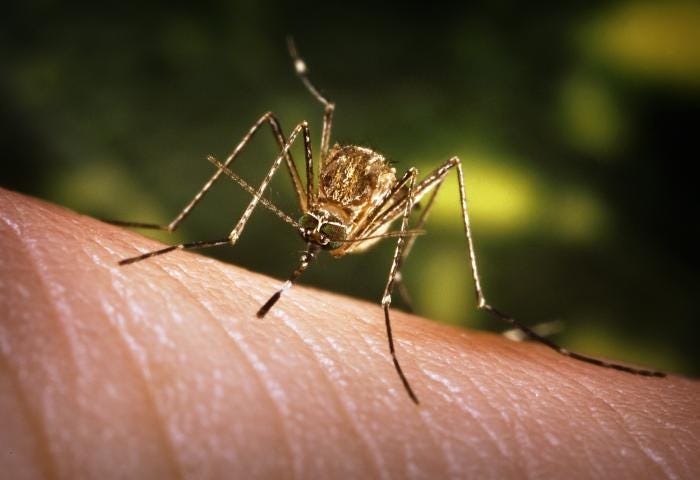The Israel Ministry of Health reports that so far 81 people have been diagnosed with West Nile fever, of which 64 people have been hospitalized, 6 of them being intubated. Seven deaths have been reported.
Most the cases are from the center of the country.
In general, about 80% of the infected do not develop symptoms of West Nile fever. About 20% of those infected will have symptoms of varying severity, including fever, general malaise, headaches or general body aches, and neurological complications will appear in less than 1% of those infected. It is important to note that the virus does not pass from person to person and the disease does not pass back from person to mosquito.
Subscribe to Outbreak News TV on YouTube
The Ministry of Health refined instructions for the medical teams with emphasis on the diagnosis and monitoring of the disease.
In order to reduce exposure to mosquitoes, the Ministry of Health recommends using mosquito repellents and appropriate accessories to keep mosquitoes away in living rooms, as well as turning on fans in the place of stay.
West Nile fever has been known in Israel for many years and occurs mainly between the months of June and November. This year morbidity started earlier than usual, apparently due to climate changes in Israel and the world, when the humid weather in the center of the country may lead to the reproduction and expansion of mosquitoes in the area. The risk of significant morbidity is among the older adults and people with immunosuppression.
In cases of West Nile fever, the Ministry of Health conducts an epidemiological investigation, and the information is forwarded to the Ministry of Environmental Protection for prevention and local extermination activities by the authorities. In addition, the Ministries of Health and Environmental Protection inform the public about areas where mosquitoes infected with the virus are caught.
There is no vaccine for humans. Currently, a vaccine exists only to protect horses.





